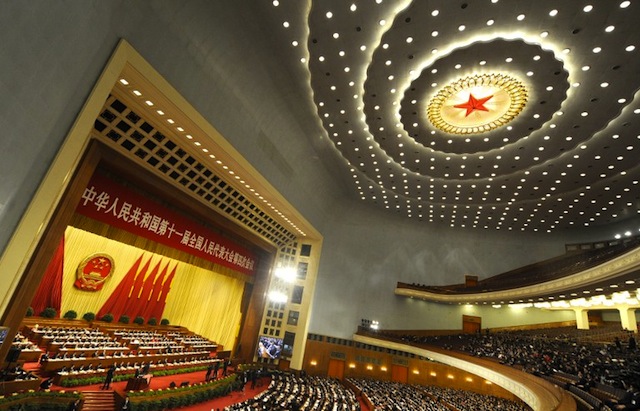SUMMARY
This is AI generated summarization, which may have errors. For context, always refer to the full article.

WUKAN, China – A year ago, the villagers of Wukan in China forced their corrupt local leader to flee in a rebellion that shook the Communist Party and which serves as a warning to the country’s incoming leaders.
At a congress starting Thursday, November 8, the party will anoint a new chief for the next 10 years, whose regime will have to address growing anger over graft as well as challenges from a vocal band of dissidents and rights activists.
In the Wukan revolt, villagers defied the usually iron-fisted police and forced their long-standing party chief to flee after angry demonstrations denouncing shady land deals during his decades-long tenure.
The crisis was defused in December when provincial authorities in Guangdong stepped in, agreed to untangle the complex web of land transfers to private developers, sacked the party chief and allowed villagers to hold elections.
The newly elected deputy head of the village has a message for Xi Jinping, the 59-year-old vice president who is widely expected to be promoted to Communist Party general-secretary this week and then state president next year.
“If they don’t wipe out and punish corruption, then things are only going to get worse,” Yang Semao told AFP in Wukan, a small fishing and farming village of about 12,000 people.
“If they don’t crack down on graft, then you are only going to encourage more people to be corrupt (and) the new government leaders will become corrupt,” he said in an interview in his office.
$111-B ‘Stability maintenance’ budget
The unprecedented government backdown in Wukan was seen by many of China’s 650 million farmers and a growing community of human rights activists as a victory over despotism, as the gap between rich and poor grows ever wider.
“The numbers of mass protests are increasing day by day and the scope is expanding. The ‘hated official’ and the ‘hated rich’ are becoming a part of the social psychology,” government critic Yang Jisheng, a retired editor at the state-run news agency Xinhua, told AFP.
“This means political reform is urgently needed.”
To quell the rising tide of unrest, China’s parliament this year approved a $111-billion annual budget for what it calls “stability maintenance”.
“Currently the budget for stability maintenance exceeds that of national defense,” Bao Tong, the highest Communist Party official jailed following the 1989 Tiananmen pro-democracy protests, told AFP.
“This is a phenomenon very rarely seen in the world. No country in the world makes its own people the biggest enemy,” added the leading dissident.
Arrests and convictions of dissidents, including the 2009 jailing of Liu Xiaobo who was awarded the 2010 Nobel Peace Prize, are seen as part of the “stability maintenance” agenda.
Another tactic employed to curb restive impulses among the 1.3-billion population is state censorship on “weibos”, homegrown social media sites akin to the banned Twitter that have become hugely popular.
Such was the case late in October when The New York Times published an investigation into the finances of Premier Wen Jiabao showing his family had controlled assets worth $2.7 billion.
Fighting graft ‘matter of life or death’
Other social grievances likely to haunt Xi’s incoming leadership team include labour disputes, judicial incompetence, environmental protests, food safety and police brutality.
With half of China now online, local disputes can be quickly amplified through the weibos, which are challenging the party’s ability to shape public opinion despite the censors’ best efforts to squelch debate.
Government-backed land grabs remain one of the most explosive social issues.
Most of China’s estimated 180,000 mass incidents or protests in 2010 were linked to allegedly corrupt deals, a 2011 study by the China Academy of Social Sciences said.
Outgoing President Hu Jintao repeatedly called fighting graft a matter of “life or death” for the ruling party, while Xi has also lambasted rampant dishonesty in government.
Political reform, if it comes at all, is likely to a be a slow process, say analysts, and must focus on curbing graft in government.
Encouraging the “Wukan model” of free local elections is one option available to Xi and his comrades in the leadership, but some residents say it has not brought the accountability for local officials and businessmen they hoped for.
Despite mandates from above, county and prefectural-level leaders have refused to investigate years of village land deals due to the tangle of interests, they say.
“Nothing has been resolved, we have been cheated,” resident Liu Hanxu said over a game of cards with his neighbors in Wukan’s village square.
“We want the land back, we want money for the land that was stolen from us. Nothing has been resolved, they are cheating the people.” – Robert Saiget, Agence France-Presse
Add a comment
How does this make you feel?
There are no comments yet. Add your comment to start the conversation.